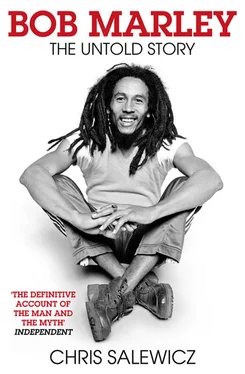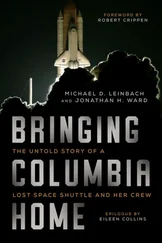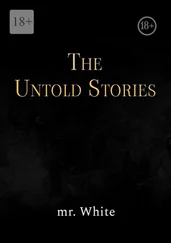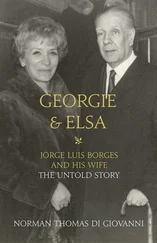‘Why are we going there?’ I demanded of Bob, as casually as I could.
‘To see about a youth them lock up – Michael Bernard,’ he quietly replied.
Michael Bernard, I learned later, was a cause célèbre.
Having descended from the heights of Beverly Hills, a detour that had been taken to avoid morning traffic (like most of the rest of the world, and especially in Jamaica at that time, when cars and car parts were at a considerable premium, this was nothing compared to the almost permanent gridlock that Kingston was to become by the end of the century), we were soon pulling up outside the Gun Court’s sinister compound.
At nine in the morning, beneath an already scorching tropical sun, the vision of the Gun Court was like a surreal dubbed-up inversion of one of the ugly, incongruous industrial trading estate-type buildings that litter much of Kingston’s often quite cute sprawl.
At the sight of Bob emerging from the mini-bus, a door within the main gates opened for his party. We stepped through into the prison. After standing for some time in the heat of the forecourt yard, an officer appeared. In hushed tones he spoke to Bob; I was unable to hear what passed between them, which was probably just as well – it being almost a year since I had last enjoyed a regular daily diet of patois, I was beginning to register I could comprehend only about a half of what was being said around me.
Then we were led into the piss-stinking prison building itself. And through a number of locked, barred doors, and into the governor’s broad office, like the study of a boarding-school headmaster, which was also the demeanour of the governor himself, a greying, late-middle-aged man who sat behind a sturdy desk by the window. We were seated on hard wooden chairs in a semicircle in front of him. I found myself directly to the right of Bob, who in turn was seated nearest to the governor. Through a door in the opposite wall arrived a slight man who appeared to be in his early twenties. He was shown to a chair. This was Michael Bernard, who had been sentenced for an alleged politically motivated shooting, one for which no one I met in Kingston believed him to be responsible.
Discussions now began, the essence of which concerned questions by Bob as to the possibilities of a retrial or of Bernard’s release from prison. Bernard said virtually nothing, and almost all speech was confined to Bob and the governor. I asked a couple of questions, but when I interrupted a third time Bob wisely hushed me – I was starting to get into a slightly right-on stride here. Most of the dialogue, I noted, was conducted in timorous, highly reverent tones by all parties present, almost with a measure of deference, or perhaps simply hesitant nervousness. (Over the years I was to decide that it was the latter, noting that often Jamaicans called upon to speak publicly – whether rankin’ politicians at barnstorming rallies, Rasta elders at revered Nyabinghi reasonings, Commissioner of Police Joe Williams in an interview I conducted with him, or crucial defence witnesses in the rarified, bewigged atmosphere of English courts – would present themselves with all the stumbling hesitancy and lack of rigorous logic of a very reluctant school-speechday orator. Yet in more lateral philosophical musings and reasonings, there are few individuals as fascinatingly, confidently loquacious as Jamaicans when it comes to conversational elliptical twists, stream-of-consciousness free-associations, and Barthes-like word de- and re-constructions.)
After twenty or so minutes, all talk seemed to grind to a halt. Afterwards I was left a little unclear as to what conclusions had been arrived at, if any. At first I worried that this was because initially I had been struggling with the effects of the herb, which seemed like a succession of psychic tidal-waves. Then later I realised that the purpose of this mission to the Gun Court was simply to show that Michael Bernard had not been forgotten.
Bidding farewell to the prisoner, wishing him luck, and thanking the governor for his time, we left his office, clanking out through the jail doors and into the biting sunlight. Soon we were back at 56 Hope Road, which by then had become a medina of all manner of activity. ‘Stick around,’ said Bob. I did. And on a bench in the shade of a mango tree round the back of the house promptly fell asleep for at least two hours from what was probably a combination of jet lag, the spliff, and some kind of delayed shock.
This visit to the Gun Court with Bob Marley was one of the great experiences of my life. I was in Jamaica for another three weeks or so. During that time I saw Bob several more times. I watched rehearsals at 56 Hope Road; saw Bob playing with some of his kids – the ones that had just released their first record as the Melody Makers; and found him with one of the most gorgeous women who had ever crossed my eyes (a different one from the car-driver at 56 Hope Road) at a Twelve Tribes Grounation (essentially, dances steeped in the mystique of Rastafari) one Saturday night on the edge of the hills. She turned out to be Cindy Breakspeare, Jamaica’s former Miss World. I also interviewed Bob for an article: whilst doing so, I remember feeling a measure of guilt for taking up so much of his precious time – though I didn’t realise then precisely quite how precious and finite it was. Part of the reason I thought this was because I felt Bob looked terribly tired and strained – it was only just over eighteen months later that he collapsed whilst jogging in Central Park with his friend Skill Cole, and was diagnosed as suffering from cancer.
It came as a deep, unpleasant shock just before midnight on 11 May 1981 to receive a phone call from Rob Partridge, who had so assiduously handled Bob’s publicity for Island Records, to be told that Bob had lost his fight with cancer and passed on. (I had always believed that Bob would beat the disease …) Although I wrote his obituary for NME , it seemed my relationship with Bob and his music was only just beginning. In February 1983, I was back in Jamaica, writing a story for The Face about Island’s release of the posthumous Bob Marley album Confrontation .
Again, jet lag caused me to wake early on the first morning I was there. This time I was staying just down the road from the former Sheraton, at the neighbouring Pegasus Hotel. Getting out of bed, I switched on the radio in my room. The Jamaican Broadcasting Corporation (JBC) seven o’clock news came on with its first story: ‘Released from the Gun Court today is Michael Bernard …’ Wow! Phew! JAH RASTAFARI!!! That Jamaica will get you every time. The island really is a land of magic realism, a physical, geographical place that is like a manifestation of the collective unconscious. Or is it that Bob Marley, as someone once suggested to me, is very active in psychic spheres and has a great sense of humour? Was this just something he’d laid on for me in the Cosmic Theme Park of the Island of Springs, I found myself wondering, with a certain vanity.
The Caribbean island of Jamaica has had an impact on the rest of the world that is far greater than might be expected from a country with a population of under three million. Jamaica’s history, in fact, shows that ever since its discovery by Christopher Columbus, it has had a disproportionate effect on the rest of the world.
In the seventeenth century, for example, Jamaica was the world centre of piracy. From its capital of Port Royal, buccaneers under the leadership of Captain Henry Morgan plundered the Spanish Main, bringing such riches to the island that it became as wealthy as any of Europe’s leading trading centres; the pleasures such money brought earned Port Royal the reputation of ‘wickedest city in the world’. In 1692, four years after Morgan’s death, Port Royal disappeared into the Caribbean in an earthquake. However, a piratic, rebellious spirit has been central to the attitude of Jamaicans ever since: this is clear in the lives of Nanny, the woman who led a successful slave revolt against the English in 1738; of Marcus Garvey, who in the 1920s became the first prophet of black self-determination and founded the Black Star shipping line, intended to transport descendants of slaves back to Africa; of Bob Marley, the Third World’s first superstar, with his musical gospel of love and global unity.
Читать дальше












